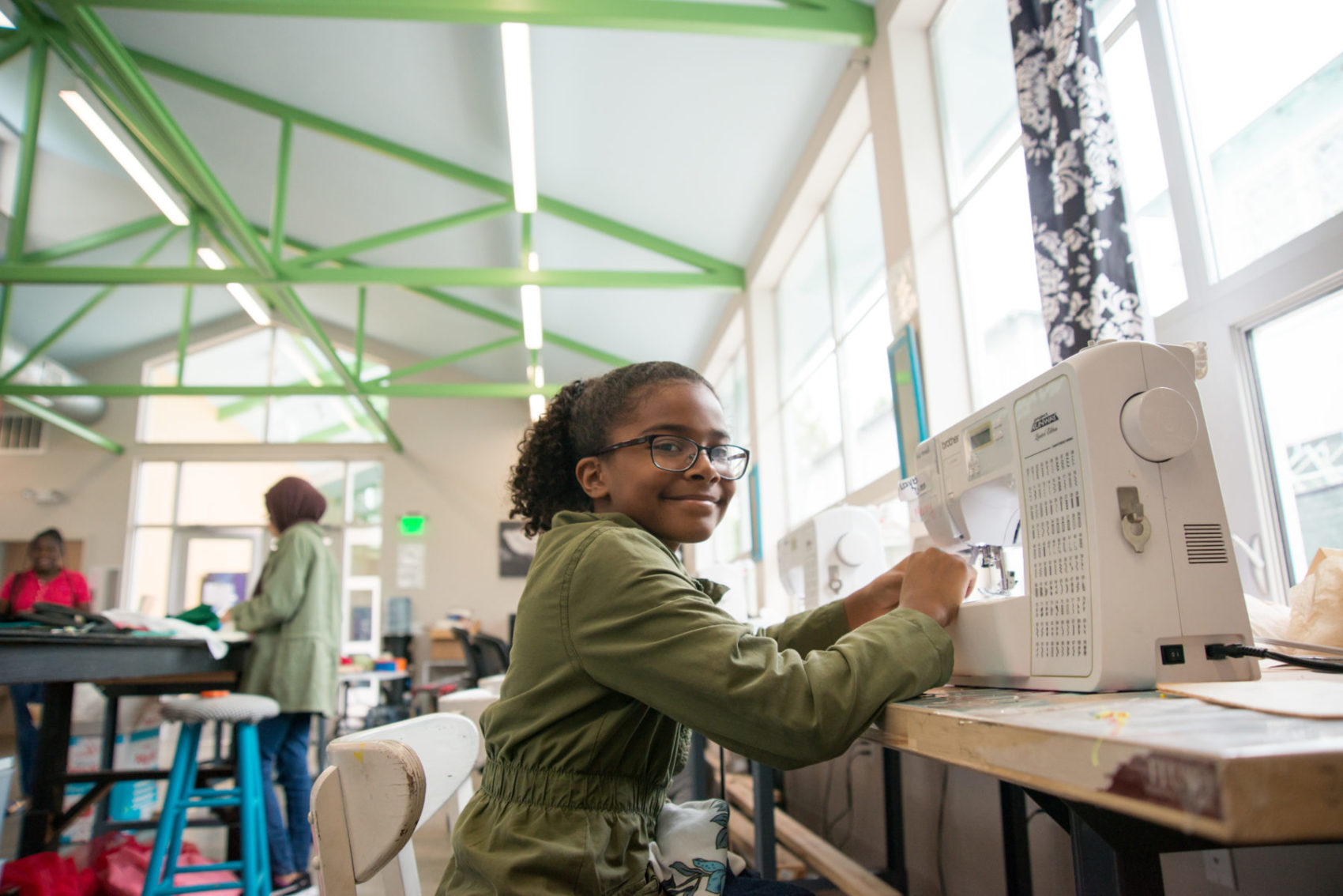About Us


Workshop Houston 2.0
Workshop Houston opened in 2003 as a community bike repair shop and quickly evolved to hands-on project-based arts programs in order to meet the expressed needs of the youth of Third Ward. After almost twenty years, we are evolving again, this time to directly confront the systems oppressing the youth we serve.
After a year-long process of self-evaluation and research, we are now Workshop Houston 2.0! We are still offering culturally-specific arts education programs in our Beat Shop, Style Shop, Dance Shop, and Media Shop, but we are fundamentally changing how we deliver this programming and make decisions. Going forward, Workshop Houston will operate under a youth-adult partnership framework anchored by near-peer instructors and led by Roderick “Bass” Tillman. With these changes our programs will better provide youth the necessary tools needed for liberation: education, collective action for social change, and economic security.
In practice, this means that Workshop Houston’s programs are now being taught by ten near-peer instructors — current and former participants who are 15-27 years old. These young people have a combined 36 years of experience at Workshop Houston, building the skills and experience needed to teach their chosen mediums and to be positive role models and leaders. The near-peer instructors are supported by teaching-artist mentors who assist with training, curriculum development, and continuing education. After near-peer instructors gain experience teaching established starter courses and leading new student recruitment efforts, they will design and teach new course offerings and organize events. Eventually, a collective of near-peer instructors will plan and implement all of Workshop Houston programs.
In order to support this change in structure, Beat Shop and program director Roderick “Bass” Tillman has been promoted to CEO by the Workshop Houston board of directors. Bass is especially suited for this role as an accomplished professional musician and the long-time lead mentor for students at Workshop Houston. He also recently led the expansion of the programs to in-school time. Over his ten years at the organization, he has formed the relationships with the youth and community necessary for leading Workshop Houston into this new paradigm. Zach Moser, the outgoing CEO, will be staying on and supporting the organization in a development role, ensuring a smooth leadership transition.
This new structure does a number of important things simultaneously. It helps Workshop Houston become more effective and efficient, as experience and research shows that students are more likely to participate in programs that are designed and taught by their near peers. It weaves the impact of our programs directly into their operation, as our near-peer instructors are able to receive the financial support needed to focus on their education and leadership development. Most importantly, the structure supports the positive identity students need for self-efficacy through an educational model that resources their community’s intrinsic value and knowledge.
With this evolution Workshop Houston 2.0 is meeting the current moment — one where young people are using their voices and power to create the world they need. Thank you to everyone who has helped Workshop Houston realize its next chapter, and everyone who has been a part of the journey from the beginning. Our work is only possible with faith and support of the community. We invite you to be part of this exciting step forward.
MISSION
To provide youth with creative, technical and educational resources in the arts.
VISION
To lay the groundwork for a just society by creating a community that provides youth with expanded opportunities and alternative definitions of success.

VALUES
Community
Communities are the primary social unit capable of progressive change; a community can create collective action while retaining the freedom of individual voices. Participating in a positive and engaged community that recognizes our interdependence and supports and mentors youth is the best way to inspire youth to reach their full potential.
Empowering Individuals
The building blocks of communities working to change society are empowered and educated individuals. We define empowerment as individuals seeing change as a realistic possiblity and having the power to do what they believe is right. We find that the best way to prepare someone to create power for themselves is to provide opportunities for learning and creative expression and allow space for them to define and enact change for themselves and their communities.
Education as a Way of Life
We see education and the pursuit of knowledge as a central goal in life, as well as the best way to prepare youth to lead fulfilling lives and to inspire them to participate in positive communities. Through creative, hands-on, and self-directed projects we are able to engage youth in learning and show them that education can be relevant to their lives as well as be a vehicle for growth and change. Finally, we work to tie education to empowerment by teaching youth the critical skill of how to use information to make positive decisions.
Justice
We recognize that historic injustices are an important factor in creating the inequalities that exist in American economic, political, and educational systems. Our work seeks to both alleviate the critical problems these injustices create for youth, while at the same time defining and working towards a new society that is just for all people.
Culture
We affirm the dignity and worth of all people. Additionally, we celebrate and respect the variety of human culture. We strive to participate in a society that holds both of these values paramount.
Structure as Values
We recognize that in working to change society the structure of our organization must reflect the values of the community we wish to create, just as we must model the behavior we expect of our participants. With this knowledge we structure our organization around collectivity and collaboration which allows us to be inclusive, supportive, dynamic and innovative, all traits we desire in our community. We also work to continually improve ourselves by becoming more disciplined, accepting of change, better communicators and better educators.